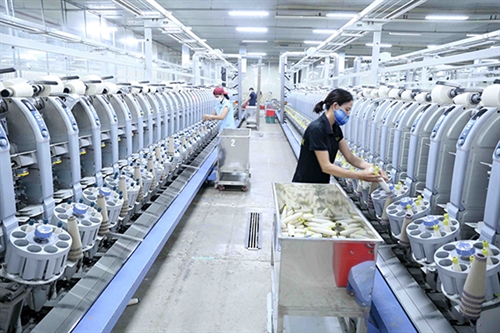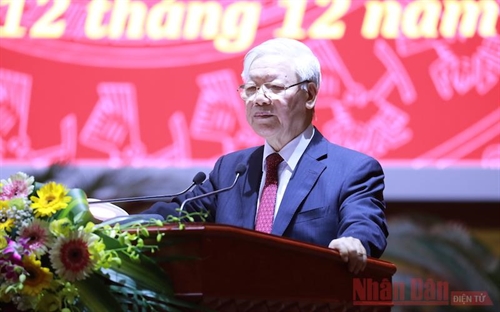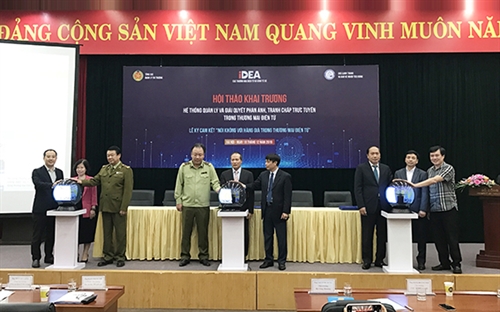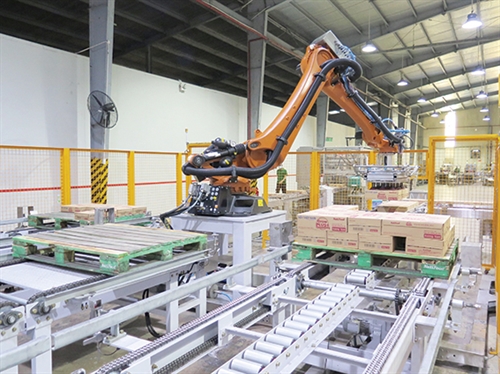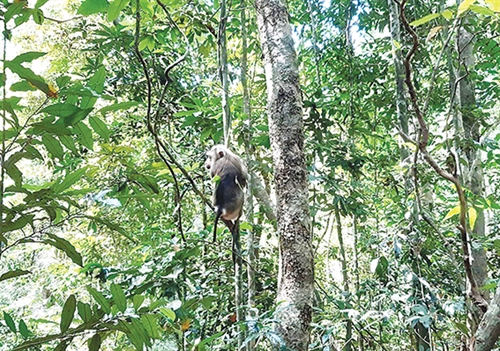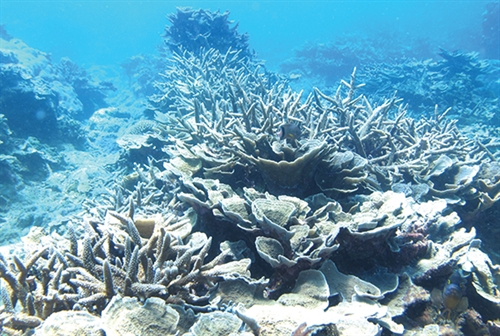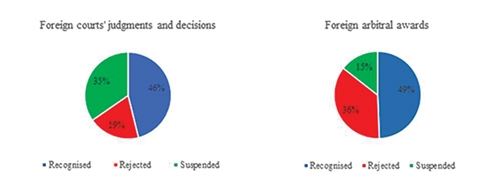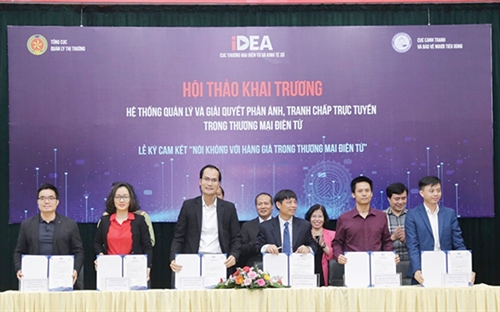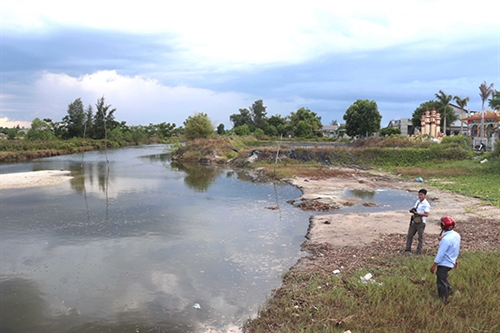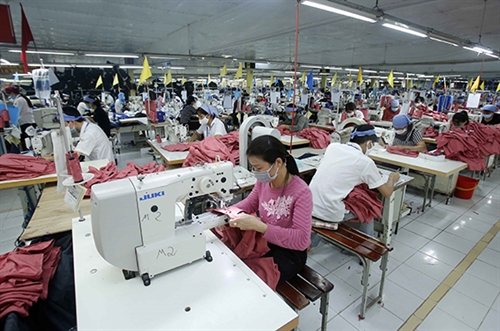In Vietnam, surveillance of assets and income of office-holders is a measure taken by the State to monitor the quantity, origin of and changes to assets and income, thus detecting and preventing office-holders from taking advantages of their positions and powers to commit corrupt acts. However, the current law does not contain specific provisions on monitoring assets and income of officials and civil servants working in professions directly related to wildlife trade. This situation poses an urgent requirement for improvement of institutions on monitoring assets and income of officials and civil servants in general, and officials and civil servants performing the task of preventing and fighting illegal wildlife trade in particular.
Dr. Pham Thi Hue
Inspectorate Strategy and Science Institute
Current law on monitoring of income and assets of office-holders
The current legal system of Vietnam already regulates the asset and income surveillance of officials and civil servants. Both the 2018 Anti-Corruption Law and its guiding text, Decree 59/2019/ND-CP of July 1, 2019, require disclosure of information on assets, income, gift-giving and gift-return. The current law also specifies other alternative measures to keep assets and income of office-holders under surveillance such as monitoring personal income tax and non-cash payments. However, limitations still exist.
Firstly, the current legal system on asset and income surveillance is a system of regulations formulated on the basis of classifying subjects based on the levels of position-based allowance they are entitled to, i.e., their salary-based income. This system is applicable to all subjects, including officials and civil servants, regardless of their professions, fields or working areas. This means that current regulations do not contain specific provisions dedicated to monitoring of assets and income of officials and civil servants directly working in the fields related to illegal wildlide trade such as customs, forest protection, police, border guard, justice, and market surveillance. Thus, a local customs officer who works in remote areas is obliged to make income and asset declaration just like those working at seaports or large cities with more active trade whereas, although being entitled to the same salary level, the real incomes of officials and civil servants are different depending on not only their titles and position but also their working locations and the level of socio-economic development of each region and location.
The current mechanism of asset and income surveillance that is based solely on salary rather than income, without taking into consideration such factors as regions and fields of work, will probably be a major hindrance to the effectiveness of surveillance and somewhat impact the objective of transparentizing assets and income of officials and civil servants for anti-corruption purposes.
The result of 10 years’ implementation of the Anti-Corruption Law shows that the rate of declaration of assets and income has reached 99.5 percent, the rate of disclosure reached 98.3 percent. During 10 years, 4,859 cases have been verified, 17 persons have been disciplined for untruthful declaration of assets. In addition, 70 people have been disciplined for violating regulations on the organization of declaration of assets and income[1].
The 2008 Anti-Corruption Law on the one hand stipulates strict punishment for untruthful declaration, dishonest explanation about the origin of increased assets and income but on the other hand, just focuses on handling dishonest declarants rather than handling untruthful declared assets. Such provisions somehow reduce the effect of surveillance of assets and income as they fail to handle the root cause of untruthful declared assets which, in most cases, are obtained through corruption.
Official statistics shows that the number of cases of violations concerning the conflict of interest is very small. During 2006-15, just 879 officials and civil servants were reported having returned gifts of a total value of VND 3.3 billion while 10 cases of violation were detected and handled[2]. Vietnam’s law prohibits illegal hunting, killing, raising, and storing wild animals, but there is no regulation on liability toward users of wildlife products. This is a legal loophole in asset and income surveillance in particular and in the legal system on prevention of illegal wildlife trade in general. As demand leads to supply, if the law only prohibits wildlife trafficking without banning consumption, it would not reduce violations of the law on wildlife protection.
Secondly, the implementation of regulations on personal income tax is not really effective, especially in preventing corruption. It is necessary to emphasize that current regulations on declaration of income and assets are intended to monitor and prevent illegal income rather than managing incomes from legal sources for tax administration purposes. It is not to mention Vietnamese people’s habit of using cash, which can be considered a significant obstacle to collecting tax in general and personal income tax in particular. The widespread use of cash limits authorities in the oversight of income and, at the same time, offers the opportunity for concealing the origin of income or transferring assets, which leads to non-declaration for tax payment as prescribed.
Thirdly, cashless payment has become more and more popular in Vietnam but is not equivalent to the current infrastructure and the requirements of asset and income surveillance to prevent corruption. Cash remains the major payment instrument, the amount of cash in circulation continues to increase, and most residential transactions are still in cash. Even the payment of salary via bank accounts has not been implemented in all agencies, organizations and units. This situation also makes it difficult to control assets and income of officer-holders.
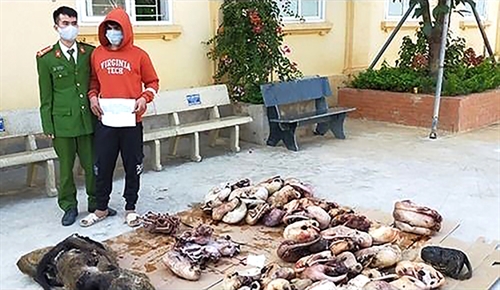 |
| Evidence of an illegal wildlife storage case detected in Muong Lat district, Thanh Hoa province__Photo: Trinh Duy Hung/VNA |
Relation between corruption and illegal wildlife trade
In recent years, statistics show that illegal transportation of products under CITES Appendices such as pangolins, pangolin scales and ivory tends to increase. A lot of imported consignments are declared to be wood products but later detected to be endangered wildlife products. It should be noted that wild animals are mostly endangered, so the value of illegal wildlife transactions in the market is very high and profits gained from these products are even much greater than those from drugs. More dangerously, wildlife trafficking leads to the destruction of these species in the wild, destroying the environment and natural ecology, and in the long term, will lead to serious consequences to the life of natural ecology. Because of the lucrativeness of these activities, it is easy to explain why offenders employ all possible methods and tactics to commit violations and look for ways to collude with law enforcement officials and civil servants to bribe, “lubricate” or even unite and cooperate with each other to trade and share profits. It is undeniable that salaries of office-holders in Vietnam remain relatively low, making them difficult to ensure and maintain a well-off life, while in their working environment, they always have to face with “opportunities” or “conditions” to increase income and improve living standards for themselves and their families. Especially, in the context of legal loopholes in asset and income surveillance mechanism, there is slim chance of detecting changes to assets and income, along with very flexible fluctuations of the estate market, the stock market and many other markets in Vietnam which always create opportunities for officials and civil servants to participate in and make profits without any oversight due to the limitation of management mechanisms in these areas. On the other hand, that is also the reasons given by officials and civil servants to explain for their abnormal increase in assets whenever needed.
The reality of fighting ivory trade is an example of the relationship between corruption and illegal wildlife trafficking. According to conservation experts, Vietnam is one of the most active smuggling markets of ivory in the world. Although authorities have taken stringent measures, the prevention and handling of those who lead the illegal ivory trade chain are not really effective. One of the reasons given by conservation experts is that corruption and patronage for illegal ivory trade from competent authorities have the greatest impact, hindering efforts of investigation, prosecution and adjudication of wildlife crimes over the past few years.
A representative of the Wildlife Conservation Society (WCS) said that corruption and wildlife trafficking are two independent crimes but inter-related. Wildlife trafficking increases corruption and bribery, at the same time, corruption makes the situation of trafficking more serious; wildlife poaching takes place strongly in places where corruption is rampant.
Practical experience shows that the main corrupt acts in illegal wildlife trade are receiving bribes to turn a blind eye toward counterfeit and expired documents, export permits or asking for money (bribes) to allow illegal transportation of products through a checkpoint. Along with that is such acts as counterfeiting papers, taking advantage of position to legalize smuggling. It is not to mention the situation where local officers in charge of wildlife protection have social or family relationships with illegal wildlife traders. It is bribery, ignorance and facilitation of competent authorities that prevent wildlife crimes from being detected and handled or improperly handled.
Recommendations
The current situation poses urgent needs for improving the institutions of asset and income surveillance of officials and civil servants in general, and officials and civil servants performing the task of preventing and fighting illegal wildlife trade in particular. Because, with a consignment worth hundreds of billion or even trillions dong, the possibility that smugglers “bribe” officials and civil servants to commit their crimes is very high. If this phenomenon still exists, not only the effectiveness of the prevention and combat of illegal wildlife trade is not achieved, but also anti-corruption efforts fail. The author suggests some solutions to redress the situation as follows:
Completing the mechanism of asset and income surveillance of officials and civil servants
It is necessary to study and prescribe the mechanism of asset and income surveillance separately for each group of subjects according to their working fields and occupations. Accordingly, on the basis of the general principles of the Anti-Corruption Law as well as specific characteristics of each industry, profession, and working field, management agencies will develop their own surveillance rules, suitable for each position, working location, and specific field to ensure effective surveillance and promote the role of anti-corruption. Experience from different countries around the world is to develop and implement mechanisms of preventing conflicts of interest and promoting accountability in public services in order to monitor the performance of officials and civil servants, thereby ensuring the integrity and objectivity of public service activities. Along with this is a strict mechanism for handling unexplained assets, for example, confiscating or applying high taxes on these assets.
In addition to improving legal provisions related to gifts to prevent corruption, it is necessary to supplement and complete specialized laws in the direction of prohibiting the storage and use of wild animals as well as products of wild animals in all forms. Researches should be conducted to increase the penalty for corruption crimes related to wildlife trade and storage, such as receiving bribes that are wild animals or products of wild animals. Regulations on handling untruthfully declared assets and assets of undefined legal origin should be improved toward increasing punishment if the property is wild animals or products of wild animals. Legal provisions on monitoring conflicts of interest in the fields of customs, forest protection, market surveillance also need to be improved.
Completing and applying the personal income tax mechanism
In addition to the improvement of the legal framework to enhance the effectiveness of personal income tax tools in asset and income surveillance, it is necessary to impose personal income tax on assets of undefined legal origin (obscure property). The Anti-Corruption Law should provide the transfer of the cases under which office-holders can not prove the legal origin of assets to tax administration offices and investigation bodies for the latter to carry out procedures to collect tax and apply administrative penalties and, when necessary, confiscate the assets.
Interlinking data systems on asset and income surveillance of officials and civil servants
In some areas which are at high risk of corruption (including the prevention of illegal wildlife trade) such as customs, forest protection, police, border guard, justice, and market surveillance, the interlinking of assets and income data will help state management agencies track the transfers of and changes to assets of office-holders in this field, thereby keep their assets and income under surveillance to prevent corruption.
There should be a mechanism to link information on officer holders’ declaration of assets, income and with information on their personal income tax, bank transactions, and ownership and land use rights. Only when we can track the transfer of and changes to assets and income that we can effectively detect the abnormal increase in assets. In the long term, it is necessary to establish an independent body in charge of managing and monitoring asset and income declarations which will be entitled to assess data of other agencies in order to compare and synthesize information on asset and income changes of office-holders.
Promoting cashless payment
This is an important solution which aims to monitor the cash flow, thus transparentizing information on assets and income of office-holders in general and those engaged in the fight against illegal wildlife trade in particular.-
